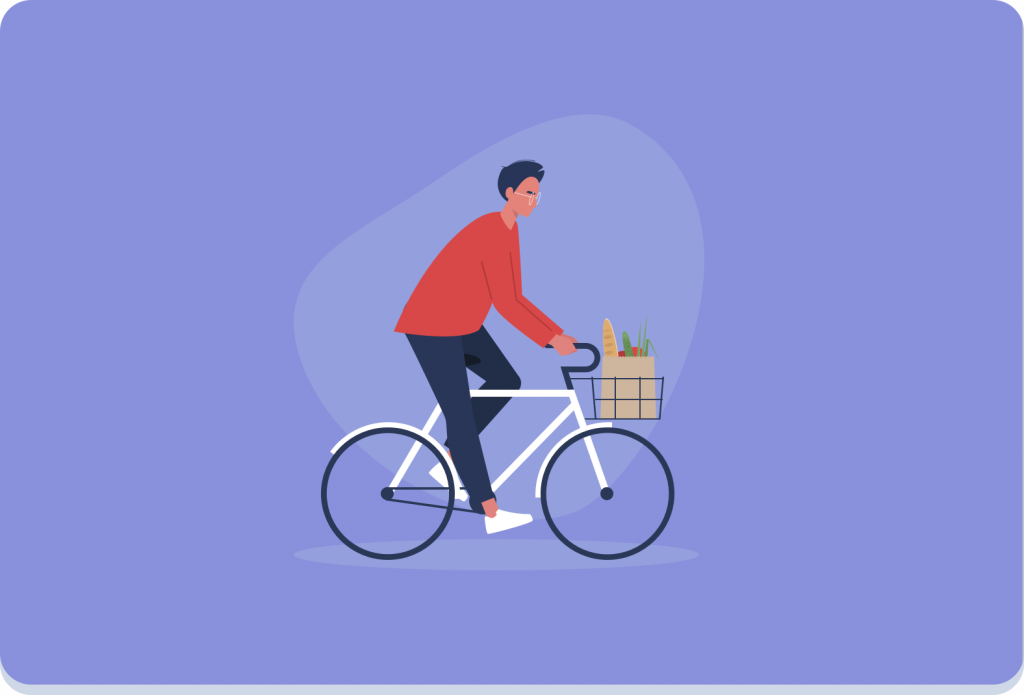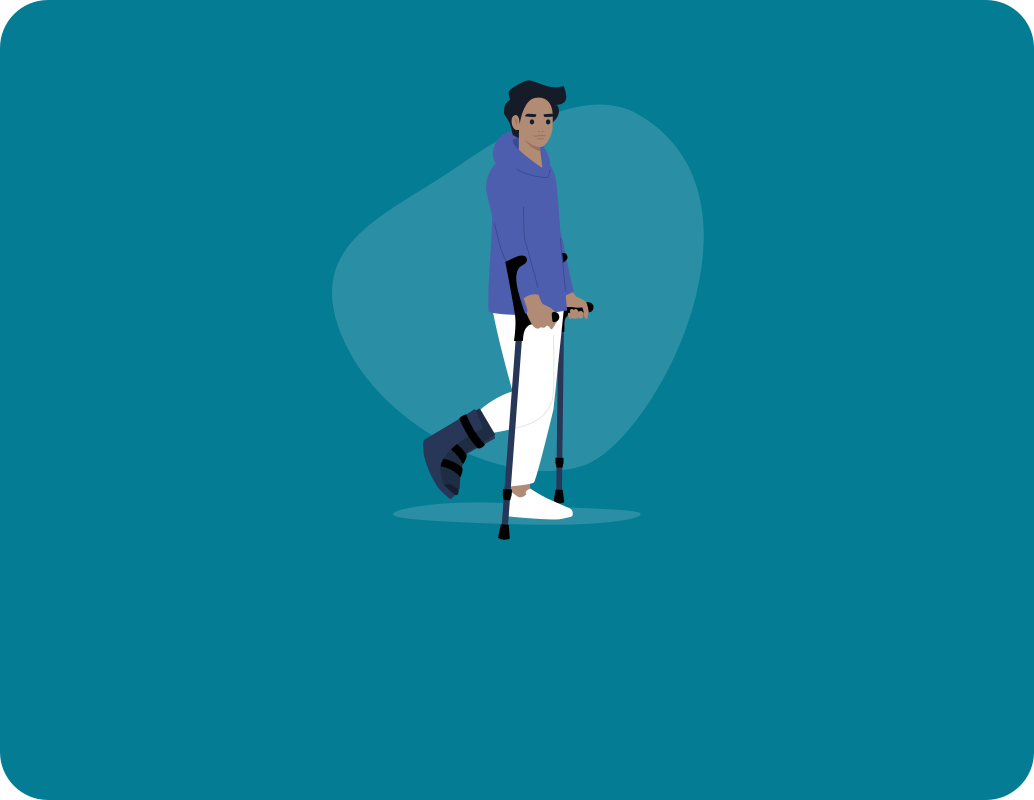Life forces us to deal with difficulties that are outside of our control. We may have to deal with setbacks, grief, traumas, and other life-changing situations. Resiliency is more than being adaptable or flexible. It’s about finding strength when you feel hopeless, and finding happiness when it feels impossible.
In this TEDx Talk, resilience expert and researcher Dr. Lucy Hone discusses three resiliency strategies that helped her through personal tragedy.
So I’d like to start, if I may, by asking you some questions.
If you’ve ever lost someone you truly loved, ever had your heart broken, ever struggled through an acrimonious divorce, or being the victim of infidelity, please stand up.
If standing up isn’t accessible to you, you can put your hand up. Please stay standing and keep your hand up there.
If you’ve ever lived through a natural disaster, being bullied or made redundant, stand on up. If you’ve ever had a miscarriage, if you’ve ever had an abortion or struggled through infertility, please stand up.
Finally, if you or anyone you love has had to cope with mental illness, dementia, some form of physical impairment or cope with suicide, please stand up.
Look around you. Adversity doesn’t discriminate. If you are alive, you are going to have to, or you’ve already had to, deal with some tough times.
Thank you everyone. Take a seat.
I started studying resilience research a decade ago at the University of Pennsylvania in Philadelphia. It was an amazing time to be there because the professors who trained me had just picked up the contract to train all 1.1 million American soldiers to be as mentally fit as they always have been physically fit.
As you can imagine, you don’t get a much more skeptical, discerning audience than the American drill sergeants returning from Afghanistan.
So for someone like me whose main quest in life is trying to work out how we take the best of scientific findings out of academia and bring them to people in their everyday lives, it was a pretty inspiring place to be.
I finished my studies in America and I returned home here to Christchurch to start my doctoral research. I’d just begun that study when the Christchurch earthquakes hit.
So I put my research on hold and I started working with my home community to help them through that terrible post-quake period. I worked with all sorts of organizations, from government departments to building companies and all sorts of community groups, teaching them the ways of thinking and acting that we know boost resilience.
I thought that was my calling, my moment to put all of that research to good use. But sadly, I was wrong. For my own true test came in 2014 on Queen’s Birthday weekend. We and two other families had decided to go down to Lake Ohau and bike the outs to ocean. At the last minute, my beautiful twelve-year-old daughter Abi decided to hop in the car with her best friend Ella, also 12, and Ella’s mom Sally, a dear dear friend of mine.
On the way down, as they traveled on Thompson’s Track, a car sped through a stop sign, crashing into them and killing all three of them instantly.
In the blink of an eye, I find myself flung to the other side of the equation, waking up with a whole new identity. Instead of being the resilience expert, suddenly I’m the grieving mother. Waking up not knowing who I am, trying to wrap my head around unsinkable news, my world smashed to smithereens.
Suddenly I’m the one on the end of all this expert advice and I can tell you I didn’t like what I heard one little bit.
In the days after Abi died, we were told we were now prime candidates for family estrangement, that we were likely to get divorced and we were at high risk of mental illness. Wow! I remember thinking thanks for that, I thought my life was already pretty shit.
Leaflets described the five stages of grief: anger, bargaining, denial, depression, acceptance. Victim support arrived at our door and told us that we could expect to write off the next five years to grief. I know the leaflets and the resources meant well. But in all of that advice, they left us feeling like victims, totally overwhelmed by the journey ahead and powerless to exert any influence over our grieving whatsoever.
I didn’t need to be told how bad things were. Believe me I already knew things were truly terrible. What I needed most was hope. I needed a journey through all that anguish, pain and longing. Most of all, I wanted to be an active participant in my grief process.
So I decided to turn my back on their advice and decided instead to conduct something of a self-experiment. I’d done the research. I had the tools. I wanted to know how useful they were beating me now in the face of such an enormous mountain to climb.
Now I have to confess at this point: I didn’t really know that any of this was going to work. Parental bereavement is widely acknowledged as the hardest of losses to bear. But I can tell you now five years on what I already knew from the research that you can rise up from adversity, that there are strategies that work, that it is utterly possible to make yourself think and act in certain ways that help you navigate tough times.
There is a monumental body of research on how to do this stuff. Today I’m just going to share with you three strategies. These are my go-to strategies that I relied upon and saved me in my darkest days.
There are three strategies that underpin all of my work and they’re pretty readily available to us all. Anyone can learn them. You can learn them right here today.
So number one: resilient people get that shit happens. They know that suffering is part of life. This doesn’t mean they actually welcome it in; they’re not actually delusional. Just that when the tough times come they seem to know that suffering is part of every human existence, and knowing this stops you from feeling discriminated against when the tough times come.
Never once did I find myself thinking: why me? In fact, I remember thinking: why not me? Terrible things happen to you just like they do everybody else. That’s your life now. Time to sink or swim.
The real tragedy is that not enough of us seem to know this any longer. We seem to live in an age where we’re entitled to a perfect life where shiny happy photos on Instagram are the norm, when actually, as you all demonstrated at the start of my talk, the very opposite is true.
Number two: Resilient people are really good at choosing carefully where they select their attention. They have a habit of realistically appraising situations and typically managing to focus on the things that they can change and somehow accept the things that they can’t. This is a vital learnable skill for resilience.
As humans, we are really good at noticing threats and weaknesses. We are hard-wired for that negative. We’re really, really good at noticing them. Negative emotions stick to us like Velcro, whereas positive emotions and experiences seem to bounce off like Teflon.
Being wired in this way is actually really good for us and served us well from an evolutionary perspective. So imagine for a moment I’m a cave woman and I’m coming out of a cave in the morning and there’s a saber-toothed tiger on one side and a beautiful rainbow on the other. It kind of pays for my survival for me to notice this tiger.
The problem is we now live in an era where we are constantly bombarded by threats all day long and our poor brains treat every single one of those threats as though they were a tiger. Our threat focus, our stress response is permanently dialed up.
Resilient people don’t diminish the negative but they also have worked out a way of tuning in to the good.
One day when doubts were threatening to overwhelm me, I distinctly remember thinking: “No, you do not get to get swallowed up by this. You have to survive. You’ve got so much to live for. Choose life, not death. Don’t lose what you have to what you have lost.” In psychology we call this benefit finding.
In my brave new world, it involved trying to find things to be grateful for. At least our girl hadn’t died of some terrible long drawn-out illness; she died suddenly instantly sparing us and her that pain.
We had a huge amount of social support from family and friends to help us through. And most of all we still had two beautiful boys to live for, who needed us now and deserve to have as normal a life as we could possibly give them.
Being able to switch the focus of your attention to also include the good has been shown by science to be a really powerful strategy. So in 2005, Marty Seligman and colleagues conducted an experiment and they asked people — all they asked people to do was think of three good things that had happened to them each day.
What they found over the six months course of this study was that those people showed higher levels of gratitude, higher levels of happiness and less depression over the course of the six months study. When you’re going through grief you might need a reminder or you might need permission to feel grateful.
In our kitchen, we’ve got a bright pink neon poster that reminds us to accept the good. In the American army, they frame it a little bit differently. They talk to the army about hunting the good stuff. Find the language that works for you but whatever you do make an intentional, deliberate ongoing effort to tune in to what’s good in your world.
Number 3: Resilient people ask themselves: is what I’m doing helping or harming me? This is a question that’s used a lot in good therapy. And boy, is it powerful. This was my go-to question in the days after the girls died. I would ask it again and again: should I go to the trial and see the driver? Would that help me or would it harm me?
Well, that was a no-brainer for me. I chose to stay away. But Trevor, my husband, decided to meet with the driver at a later time. Late at night I’d find myself sometimes pouring over old photos of Abi getting more and more upset. I’d ask myself: “Really? Is this helping you or is it harming you? Put away the photos. Go to bed for the night. Be kind to yourself.”
This question can be applied to so many different contexts: is the way I’m thinking and acting helping or harming you in your bid to get that promotion, to pass that exam, to recover from a heart attack? So many different ways.
I write a lot about resilience and over the years this one strategy has prompted more positive feedback than any other. I get scores of letters and emails and things from all over the place of people saying what a huge impact it’s had on their lives.
Whether it is forgiving family ancient transgressions, arguments from Christmases past, or whether it is just trolling through social media, whether it is asking yourself whether you really need that extra glass of wine, asking yourself whether what you’re doing the way you’re thinking, the way you’re acting is helping or harming you, puts you back in the driver’s seat. It gives you some control over your decision-making.
Three strategies. Pretty simple. They’re readily available to us all anytime anywhere. They don’t require rocket science.
Resilience isn’t some fixed trait. It’s not elusive that some people have and some people don’t. It actually requires very ordinary processes — just the willingness to give them a go. I think we all have moments in life where our life path splits and the journey we thought we were going down takes some terrible — veers off to some terrible direction that we never anticipated and we certainly didn’t want.
It happened to me. It was awful beyond imagining. If you ever find yourself in a situation where you think there’s no way I’m coming back from this, I urge you to lean into these strategies and think again.
I won’t pretend that thinking this way is easy and it doesn’t remove all the pain. But if I’ve learned anything over the last five years, it is that thinking this way really does help. More than anything it has shown me that it is possible to live and grieve at the same time. And for that I will be always grateful.
Thank you.











